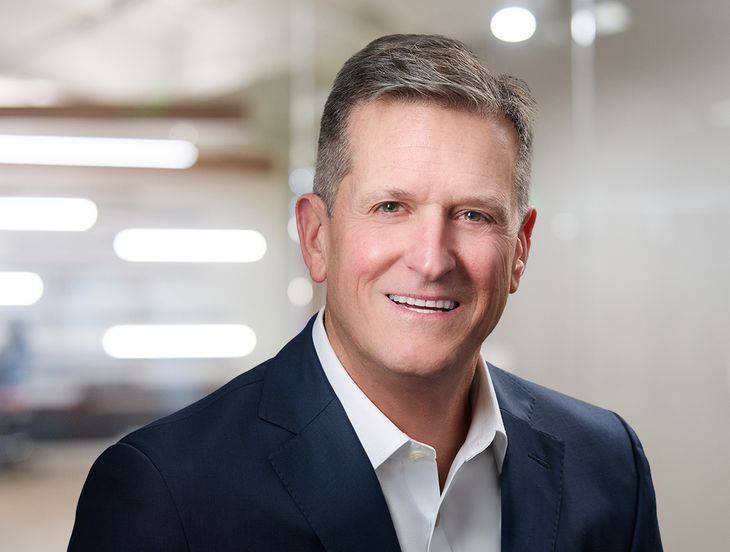Separating Myth From Fact: Employers’ FAQs About the White House’s New DOGE Efficiency Initiative
Insights
12.04.24
The recent announcement that President-elect Donald Trump has empowered Elon Musk and Vivek Ramaswamy to head up a new Department of Government Efficiency – also known as DOGE – has led to questions from employers about what this might mean for business. This Insight from our Government Relations team provides an insider’s look into what you might expect and offers answers to your frequently asked questions so you can separate myth from reality.
What is the Department of Government Efficiency?
Established by President-elect Donald Trump, the Department of Government Efficiency (DOGE) will be an unofficial advisory body to the federal government whose mission is to identify and recommend strategies to streamline federal operations, reduce bureaucratic inefficiencies, and cut wasteful expenditures.
What’s so special about the acronym “DOGE”?
The word “doge” refers to an internet meme involving a Shiba Inu dog and a subsequent type of cryptocurrency. Dogecoin was promoted by Musk in the earliest days of the crypto-boom – but the term has now entered the mainstream with the formation of this department.
Is DOGE a new federal agency?
Despite its name, DOGE will not be an official federal executive department or agency. Instead, it will serve as an external advisory commission. It is not yet clear whether the body will be subject to the Federal Advisory Committee Act, which contains various requirements regarding open meetings and public participation.
What authority will DOGE possess?
Officially, none. DOGE will merely function as an advisory entity – it has no legislative or regulatory powers. It can simply provide recommendations to the administration or Congress but will lack the authority to actually implement any policies or independently enforce any changes. Any significant reforms proposed by DOGE would almost certainly require collaboration with existing government agencies and possibly congressional approval. As a nongovernmental body, it cannot enact any policy changes, eliminate federal agencies, terminate the employment of any federal employee, or mandate any sort of budget cuts.
So why should employers care about DOGE at all?
While it will have no official powers, it will have the ear of the President – who will likely take DOGE suggestions under serious advisement and may issue executive orders or direct federal agencies to carry out its recommendations. It may also recommend budgets cuts for various agencies such as OSHA or the NLRB as a way of reducing their power. Congressional leadership may also listen to DOGE’s ideas and act accordingly, the same way some federal lawmakers follow the direction of the President. While it remains to be seen which specific initiatives will be put into action, employers should monitor DOGE in the early days of the second Trump administration to determine what impact it might have. You should also consider whether and how to interact with the organization in order to influence its recommendations. FP Advocacy can assist in such efforts.
What workplace regulations might DOGE recommend to be eliminated or streamlined?
Most of the regulations we foresee being addressed by DOGE are probably ones that would otherwise be on the chopping block anyway with the dawn of a new administration. It wouldn’t be surprising to see the following rules included in DOGE’s recommendations:
- Workplace safety: Besides a scaled-back heat standard and revisiting the electronic reporting requirements, we could see DOGE address hazard communications, machinery operation, and exposure limits to harmful substances when it comes to OSHA rules. And just as the first Trump administration saw a drastic reduction in workplace safety inspectors, we foresee DOGE recommending a similar cut.
- Wage and hour: The overtime rule has a dim future after a Texas judge struck it down in November, and it’s uncertain whether the labor-friendly Secretary of Labor nominee will support revisiting it. We doubt we’ll see DOGE insert itself here given the policy implications. But we can see the department recommending that the DOL adjust workplace record-keeping requirements to alleviate administrative burdens on employers.
- Family leave: Could we see DOGE recommend a simplification to the FMLA process so that requesting and approving leave is more streamlined? It would certainly be welcomed by employers. But we don’t envision DOGE recommending any specific changes to eligibility conditions to narrow the scope of FMLA.
- EEO-1 reports: Here’s an area that we see right in DOGE’s wheelhouse. Not only does it seem likely that the Trump administration will reverse course on the EEOC’s planned resurrection of the pay data requirements, we could see DOGE suggest simplifying EEO-1 reporting requirements or altering the frequency of submissions to lighten employers’ load.
- Medical privacy: Everyone knows that HIPAA sets stringent standards for protecting sensitive patient information and ensuring patients receive various disclosures. DOGE could consider modifying certain privacy requirements to reduce compliance costs and the administrative burden for healthcare employers.
Could private sector employers feel the impact of DOGE recommendations on the federal workforce?
The heads of DOGE already said in a recent op-ed that they will push for “mass head-count reductions across the federal bureaucracy” and requiring federal employees to return to the office five days a week. Each could have a trickle-down effect on the private sector.
- Job elimination: Potential mass layoffs in the federal workforce might lead to an influx of talent into the private sector, presenting both opportunities and challenges in recruitment.
- Return-to-office: If DOGE is successful in forcing most federal workers to return to in-office work, that may influence private sector employers to similarly limit telework policies at their own organizations. On the other hand, private employers seeking to lure federal workers to their businesses might tout their remote work or hybrid policies to their competitive advantage.
What might federal contractors expect if DOGE successfully streamlines federal operations?
If there are fewer federal workers performing necessary government tasks, we could see a corresponding increase in opportunities for private companies to carry out this work. But we could also see fewer contracts from the government, leading to intensified competition among businesses vying for the remaining opportunities – which could lead to reduced profits and budgets on your end. Changes in federal procurement practices could also affect supply chains, requiring federal contractors to reassess their big-picture strategies.
Has anything like this been tried before?
At least five times in the twentieth century, presidents have launched initiatives aimed at enhancing government efficiency. Some have had a helpful impact on the federal government:
- A commission under President Taft led to the first presidential budget, later enacted as a legal requirement.
- FDR’s committee led to the creation of the Executive Office of the President, bringing various administrative agencies under one roof.
- An effort under Vice President Gore in the 1990s led to the elimination of over 100 programs and consolidation of over 800 agencies.
But they haven’t all been successful. President Reagan’s Grace Commission essentially flopped, as the large majority of its recommendations aimed at saving $400B were rejected by Congress and never implemented.
Conclusion
We will continue to monitor developments and provide updates, so make sure you are subscribed to Fisher Phillips’ Insight System to get the most up-to-date information directly to your inbox. For more information, contact your Fisher Phillips attorney, the authors of this Insight, or an attorney in our Government Relations Practice Group. Also make sure to check out our New Administration Resource Center for Employers for a full review of our thought leadership.
Related People
-
- Benjamin M. Ebbink
- Partner
-
- Rick Grimaldi
- Partner
-
- Braden Lawes
- Senior Government Affairs Analyst


